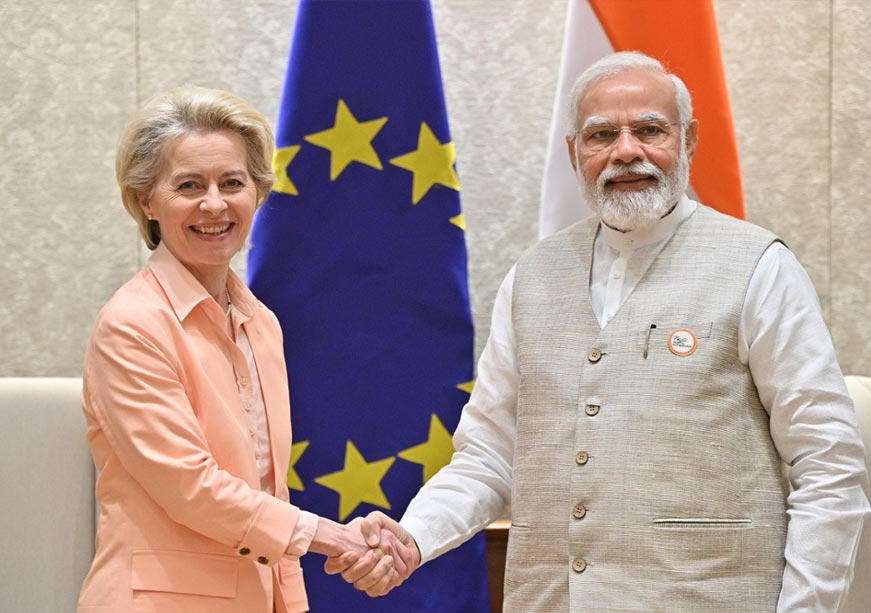SYLLABUS
GS-2: Bilateral, regional and global groupings and agreements involving India and/or affecting India’s interests.
Context:
Recently, the European Council has approved a ‘New Strategic EU-India Agenda’ to deepen cooperation across multiple sectors and expedite the conclusion of a Free Trade Agreement (FTA) by the end of 2025.
More on the News
- The Belgium-based European Council underlined the shared capacity and responsibility of the EU and India to uphold multilateralism and the rules-based international order, centered on the United Nations Charter, as well as the multilateral trading system, in particular the World Trade Organization (WTO).
New Strategic EU-India Agenda
- Key Areas of cooperation: Itidentifies priority areas like prosperity and sustainable development, technology and innovation, security and defence, and connectivity and global issues.
- Economic cooperation: It seeks to establish a balanced and mutually beneficial Free Trade Agreement that focuses on expanding market access, eliminating trade barriers, and incorporating environmental and social sustainability provisions.
- Defence Cooperation: The framework aims to promote deeper cooperation in defence and security by establishing a formal security and defence partnership and encouraging collaboration in defence industrial development and maritime awareness.
- It emphasises the importance of shared democratic values, respect for international law, and protection of human rights including the rights of women and children as guiding principles of the partnership.
- Connectivity: The agenda promotes connectivity and infrastructure development between Europe and India through sustainable transport systems and digital initiatives aligned with the EU’s Global Gateway strategy.
- Future-oriented partnership: It focuses on cooperation in emerging areas such as green energy transition, climate action, and digital transformation to build resilience against global challenges.
- Global stability: The agenda reaffirms the shared responsibility of both partners to safeguard multilateralism and the rules based international order under the framework of the United Nations and the World Trade Organisation.

